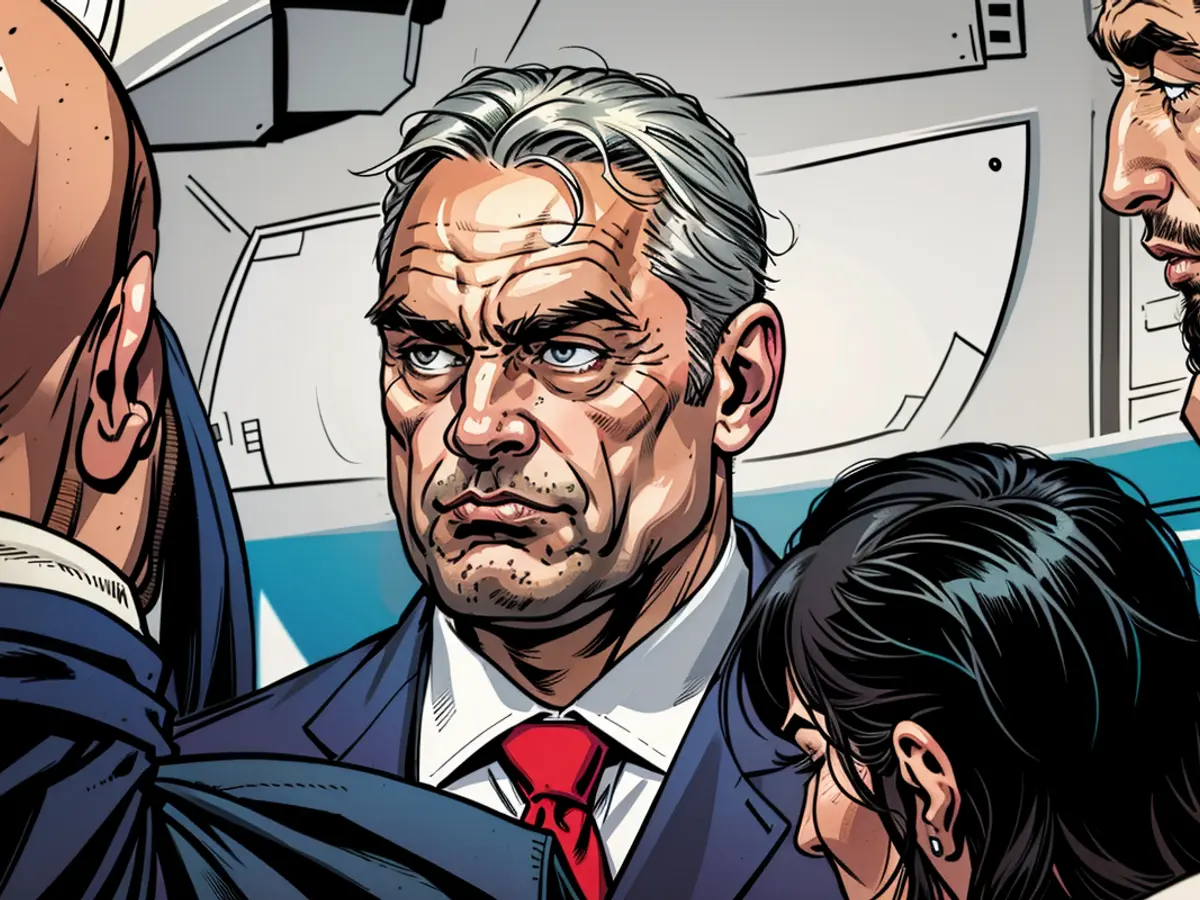Critique of Partners - Before the end: Hungary provocates at NATO summit
The Hungarian government has accused Nato partners of hypocrisy and failure in dealing with Russia's aggression against Ukraine. "We will continue to advocate for dialogue and diplomatic channels, as the current strategy of the past two and a half years has been a total failure," Hungarian Foreign Minister Peter Szijjarto said, according to a spokesperson, during a meeting with Ukrainian President Volodymyr Zelenskyy. Szijjarto represented Prime Minister Viktor Orban, who had left the summit early to meet with former US President Donald Trump in Florida.
Concretely, Szijjarto criticized that it is inconsistent for Nato to reject dialogue with Russia while Israel is pressured to negotiate with Hamas to resolve a security crisis, while diplomatic channels for the Ukraine conflict are closed.
"They want Israel to negotiate with a terrorist organization to solve a security crisis, while diplomatic channels for the Ukraine war are closed," he said.
Hungary skeptical about Ukraine in Nato
Furthermore, Szijjarto criticized that pressure is being exerted on countries like Hungary to end nuclear cooperation with Russia, while US-Russia trade, particularly in the uranium sector, is increasing. He also raised the question of whether there might be secret negotiations.
Regarding Ukraine's application to join Nato, Szijjarto said that a Nato membership for Ukraine could weaken the alliance from the Hungarian perspective. It is therefore important to carefully examine the membership.
Nato partners object
Participants in the meeting expressed that Hungary was isolated in the discussion. Several allies also made it clear that they were not in agreement with the statements of the Hungarian Foreign Minister.
The trip of Orban to Trump before the summit caused discussions. The former US President, who is now running for re-election after his resignation four years ago, is known to be open to negotiations with Russian President Vladimir Putin. After a meeting in March, Orban called Trump the "President of Peace" and Trump praised Orban as the "best leader" ever.
Orban published a photo of the meeting at Trump's Mar-a-Lago estate and wrote, "Peace Mission 5.0 ... We discussed ways to peace. The good news of the day: He will solve it!"
Orban's "peace mission" trips took him to the USA, Ukraine, Russia, and China.
Scholz receives question about Orban
Above all, this caused a stir in Brussels because Hungary currently also holds the rotating EU Council Presidency, and the Kreml used the Moscow visit for its propaganda.
Federal Chancellor Olaf Scholz, however, rejected demands for consequences such as an early end to the Hungarian Council Presidency. "Such considerations do not exist," he said to the press after the summit.
- Hungary, as a NATO partner, has voiced concerns about the alliance's inconsistency in engaging with Russia and Ukraine.
- Peter Szijjarto, Hungary's Foreign Minister, criticized this by comparing NATO's stance on Russia and Israel's negotiation with Hamas.
- Szijjarto also raised questions about potential secret negotiations and the inconsistency in stopping Hungary's nuclear cooperation with Russia while increasing US-Russia trade.
- Hungary's stance on Ukraine's NATO membership could weaken the alliance from their perspective, according to Szijjarto.
- During the NATO-Summit, Hungary was criticized for its stance by several allies, with some expressing disagreement with Szijjarto's statements.
- Prime Minister Viktor Orban's meeting with former US President Donald Trump in Florida before the summit caused discussions due to Orban's openness to negotiating with Russian President Vladimir Putin.
- Orban, who advocates for peace and has visited the USA, Ukraine, Russia, and China as part of his peace mission, was praised by Trump as the "best leader" ever.
- Germany's Federal Chancellor Olaf Scholz rejected calls for consequences against Hungary, despite the country holding the rotating EU Council Presidency and visiting Russia during this time.
- Meanwhile, Volodymyr Zelenskyy, the President of Ukraine, has maintained his call for Western support and dialogue with NATO to counter Russia's aggression.








